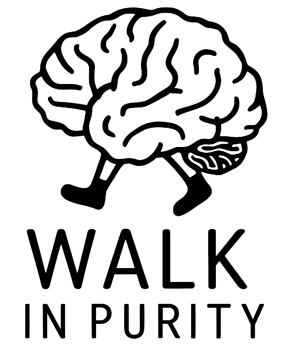We all have dreams. Maybe you long to write better, launch a small business, start a family, or make art. But fears and past mistakes often push us back. And when you carry a history of sexual addiction—porn, affairs, compulsive masturbation—the fear becomes louder: “If I step toward this dream, will I fall again?”
That tension is real. But fear doesn’t always have the final say. We can learn to move forward, wisely.
The tension: fear vs forward motion
Fear isn’t always bad. It’s a signal—alerting us to danger, mistakes, or patterns that once hurt us. But when it rules us, it becomes a prison.
Here’s the risk many fall into:
- Overcorrection: Because screens once pulled you into porn, you vow never to use screens again.
- Avoidance: You drop a dream because you fear it will lead to relapse.
- Rigid boundaries: Rather than helpful guardrails, you erect walls that trap you in a smaller life.
I want to suggest a different posture: learn from your past, but don’t let that past wall you off from what God or your deepest self wants you to become.
Start by knowing your limits
Before you charge full speed ahead, you’ll want to map what’s safe:
- Own your triggers. Be crystal clear: which settings, devices, times make relapse more likely?
- Gauge your resilience. Are there times when you’re weaker (late at night, stressed, lonely)?
- Record your pattern. Look back: “When I failed, these were the steps I took.” That gives you guardrails.
Those limits aren’t shame—they’re wisdom. They’re like a seasoned climber saying, “I won’t start that route in a rainstorm.”
So when you dream of work that uses screens, you don’t have to abandon it. But maybe you limit screen time, outsource certain tasks, or take breaks strategically.
Don’t let fear dead-end your dreams
Here are a few ways fear can derail us—and how to resist:
| Fear-move | What it does | Alternative posture |
|---|---|---|
| “I’m not strong enough.” | You stop before trying | Start small. Test the waters with low stakes. |
| “If I fail, I’ll relapse.” | You think relapse = total collapse | View failure as data. Learn, adjust, keep going. |
| “It’s safer to give up.” | You shrink your dreams | Recognize safety ≠ life. Growth often comes via risk. |
| “Others will see me fail.” | You hide or stay small | Find encouragers, confess in community. |
Fear wants you to stay in stasis. Courage nudges you forward—slowly, steadily, with eyes open.
How to advance—without empowerment turning into recklessness
Here are a few practices that help balance hope and caution:
- Phased approach
You don’t have to move from zero to full in one leap. If you hope to write or work online, begin with 30 minutes/day under filters, place your hardware in shared spaces, track your progress. - Guardrail rhythms
Each week, put in a “safety review” — how did your temptations go, what times were weak, what patterns showed up? Talk to accountability partners about it and use that information to adjust your guardrails. - Support scaffolds
- Accountability partners or groups
- Filters, blocking software, accountability apps
- Scheduled check-ins
- Spiritual anchors (prayer, meditations, scripture)
- Alternative options
If “full digital work” feels too risky, explore roles with less screen time: teaching, coaching, community work, trades, editorial roles, ministry. You may find your sweet spot somewhere in between. - Grace-lens on mistakes
If you fall, don’t let your identity crash with you. You are not your relapse. Own it, learn, repent, and resume.
A story sketch (for illustration)
Imagine Suresh. He’s a writer who also struggles with porn urges mostly through late-night browsing. For years he told himself, “I’ll never work at a desk again.” But his dream: write for a Christian magazine.
He begins with “safe hours”: 9 am to 2 pm work, using filters, break times, and a walking routine after lunch. He pairs with an accountability friend who texts him at 3 pm to ask, “How was your morning?”
Over months he builds consistency, adjusts when dark moods or loneliness torment him, and layers in spiritual disciplines. His writing grows, and he gains confidence—while staying within the guardrails his past taught him he needed.
Why this matters with addiction in view
- Addiction is not solely about willpower—it’s tangled with motivation, reward circuits, coping, craving, and compulsive drive. PMC+2Nature+2
- Fear often pushes us toward rigid extremes, which paradoxically weaken us in the long run.
- The safest path is not always the best path. Sometimes growth comes only if you dare—with planning.
Invitation
Your past behaviors don’t have to cancel your future. Let fear inform you—listen to it—but don’t obey it. Lean on wisdom, community, grace, and small steps.
May your dreams come alive—even if tentative steps toward them feel risky—for they are part of who you were meant to become.


Leave a Reply